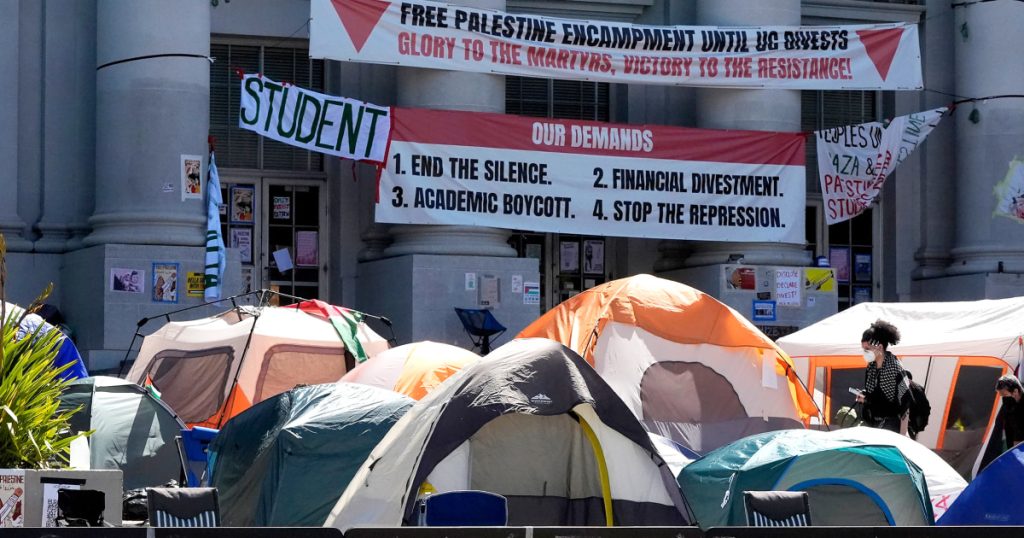Antiwar student protesters at the University of California, Berkeley, recently reached an agreement with administrators regarding the school’s Israel-related investments. The protesters had been advocating for complete divestment from weapons manufacturers and other Israeli businesses connected to military operations in Gaza. Although high-level investment decisions fall under the UC Board of Regents, Chancellor Carol Christ agreed to support a “rigorous examination” of the school’s investments. This decision marked the end of a three-week standoff between protesters and administrators at UC Berkeley.
Chancellor Christ responded to protest organizers by stating that the university has divested from businesses in the past that were deemed to be against their values. She pledged to investigate discrimination complaints against Palestinian students and create a task force to review financial dealings of the UC Berkeley Foundation by the end of June. The university opted not to involve law enforcement unless absolutely necessary, resulting in a largely peaceful encampment with daily activities such as lectures, arts programming, film screenings, and an interfaith seder. Despite the encampment’s dismantling, the protesters committed to continuing their push for divestment across the University of California system.
The University of California’s chief investment officer, Jagdeep Singh Bachher, disclosed that over 18% of the $175 billion investment portfolio is linked to Israel, with $32 billion being the focus of antiwar protesters’ divestment efforts. These assets are crucial for various university stakeholders, including employees and retirees who rely on returns to fund pensions and health benefits. Bachher emphasized the university’s commitment to making investment decisions uniformly across all portfolios managed within the University of California. By aiming to cater to the interests of all constituents, the university strives to fulfill its investment responsibilities diligently.
While antiwar protests seem to have dwindled on other college campuses, the movement at UC Berkeley sparked broader conversations about divestment from Israeli companies involved in military operations. Calls for divestment were echoed at the University of California, Merced, during a three-day meeting of the board of regents. The protest organizers highlighted the need for continued advocacy against Israeli-related investments, drawing parallels to the university system’s divestment from South Africa during apartheid in 1986. As students and protesters continue to voice their concerns regarding investments and financial decisions, the university’s responses will shape future actions and policies.
Following the dismantling of the encampment at UC Berkeley, other universities such as Harvard and Williams College have taken similar actions. The ongoing discussions surrounding divestment from Israeli companies highlight the importance of accountability and ethical investment practices within educational institutions. As antiwar protests evolve and continue to different campuses, stakeholders must address the complexities of investment decisions and their implications on societal, political, and ethical levels. The commitment to upholding values and principles while engaging in dialogue and activism remains crucial for shaping the future direction of financial investments in the educational sector and beyond.


